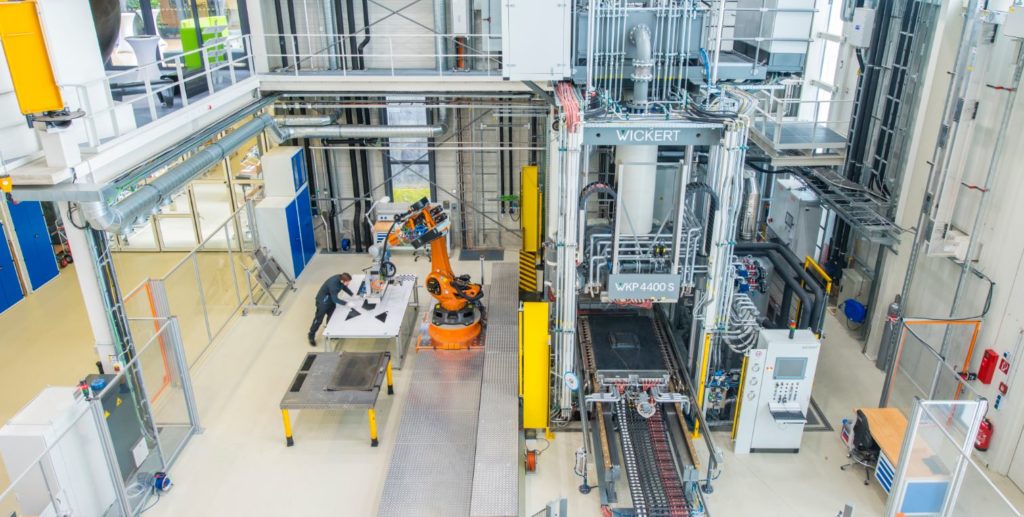The DLR Institute of Structures and Design has highly-recognised and long-established expertise in thermoplastic composite technology. At its sites in both Augsburg and Stuttgart, focus is placed on the entire process chain – from design and manufacturing technology to flexible automation solutions for the production of carbon fibre-reinforced thermoplastics.
Infrastructure for production
The Institute operates two facilities for Advanced Fibre Placement (AFP). Laser-based in-situ tape placement is developed for industrial application at the site in Stuttgart. As is known, AFP is a highly transient process involving heating, consolidation and cooling within the shortest time frame. During these three stages, different phenomena occur, which involve material flow, bonding and crystallisation, governed by temperature and pressure evolution. This is true for all thermoplastic composite processes. Thus, all aspects from fundamental to applied research – from material characterisation to data acquisition and process simulation – are covered,.
At the DLR Center for Lightweight-Production-Technology (ZLP), an integrated work cell is ready to mature viable technologies in an industry-oriented environment. This production cell combines an industrial robot for high temperature applications (KUKA KR210 R3100 Ultra F) with a composite hot press system (WICKERT 4400 S). The press, with a platen size of 1800 millimetres by 1200 millimetres, may be heated up to 450 degrees Celsius and thus enables studies on thermoforming as well as press consolidation. In addition, flashlamp-AFP is being investigated to allow production of large components without additional safety measures, such as laser shielding.
Joining technologies
Joining technologies are the key enabler for the successful introduction of thermoplastic composites in future aerospace applications. Continuous ultrasonic and resistance welding are being industrialised as the most suitable joining technologies. Technology development is supported by coupon testing and process data analysis. The goal is to achieve data-driven process control by means of inline quality assurance. By ensuring technology readiness and robustness, the DLR Institute of Structures and Design offers a wide range of core technologies to render advanced thermoplastic composites ready for customised high-volume application.
German Aerospace Center (DLR)
Institute of Structures and Design
Sebastian Nowotny · E-Mail: sebastian.nowotny@dlr.de · DLR.de
